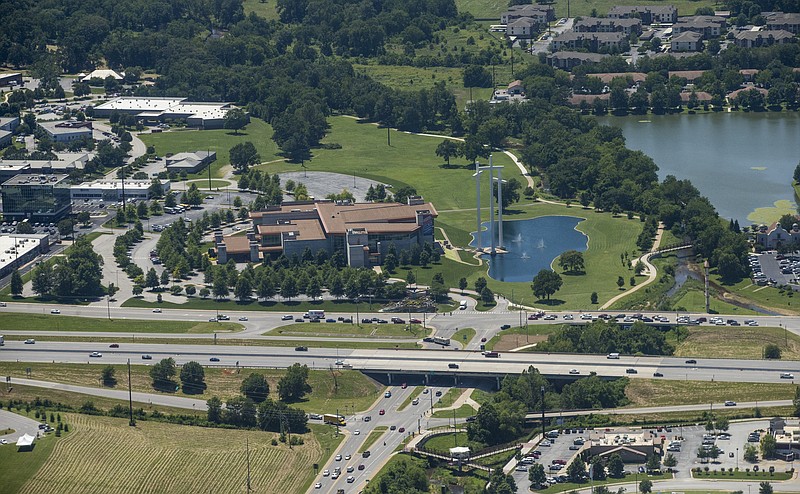Three Black residents discussed race and their experiences living in Northwest Arkansas.
The online discussion -- The Shared Experience of People of Color in NWA -- was held Wednesday and sponsored by the Community Cohesion Project.
Kerlee Nicolas, Kenndra Hammond and Dahrron Moss were the speakers.
Nicolas said he first moved to Northwest Arkansas in 2012. It was a hard adjustment and bizarre for him since he came from Boston.
"I couldn't stop staring at how much of the sky I could see while driving," he said. "It was a culture shock."
He also noticed how few Black people there were in the area.
"We make sure to make eye contact and smile and give each other the nod," Nicolas said about encountering other Black people.
Nicolas left Northwest Arkansas in 2014 and returned in 2017. He said there are still things missing in Northwest Arkansas for Black people, including food and hair care services. He and his wife have to drive three hours to Little Rock to get their hair done, Nicolas said.
"It's something we have to normalize because of the lack of options," he said.
Nicolas said he's seen a change since he returned in 2017. He sees more diverse restaurants. He also sees Black Lives Matter signs while walking in his neighborhood.
He said there's still a lack of social life for Black people because of the lack of access to R&B artists or comedians. Nicolas said there are no lounges for him to simply go to and hear R&B music.
Hammond grew up in Louisiana and has lived in Northwest Arkansas for more than two years. Hammond said she also experienced culture shock. She was critical of the overt racism she has experienced.
Hammond described Northwest Arkansas as a beautiful area but described an unwelcoming energy for her in the community.
"You are not trying to be outside at 10:30 at night in Northwest Arkansas," she said.
Hammond said she has to drive to Tulsa, Okla., or make plans to go other places for social life instead of staying in the area on weekends.
She said she has a successful career, but her personal life hasn't been the same.
Dana Johnson, the community manager of Community Cohesion Project, asked that some people may want to know why Hammond still lives in the area.
"This is not a Kenndra issue," Hammond said. "This is a human issue. It's about what's right and wrong."
Nicolas said there has been racial progress in the area, but people can also experience racial things.
He said walking his dog is a security blanket for him because he thinks people will assume he lives in his neighborhood while he's walking his dog. Nicolas said he still doesn't walk his dog at night.
Moss, a former Bentonville police officer, said Northwest Arkansas had a utopia effect on him since he came from a small town with 238 people.
"Racism was not hidden in my small town," he said. "I saw it outright."
Moss said he remembers his grandfather telling him he needed to learn more than books when he went to the University of Arkansas. His grandfather told him he needed to learn about people.
Moss said he will flat out ask someone what his or her opinion of him as a person is and if the person is racist. The response lets him know whether he wants to be around that person.
Moss spent time as a school resource officer. He said it allowed him to have frank conversations and open individuals' minds.
He said his time with the Bentonville Police Department was amazing and he was treated like a regular officer. He said he was treated amazingly in the department, but some people he encountered did make negative comments to him.
"It was a good experience minus those who were about to go to jail," Moss said.
All three speakers encouraged people to speak out against racism.
Moss said some parents will remain ignorant, but he hopes they will not spread their ignorance and racism to their children.
"Allow children to grow, develop and form their own opinions," he said.
Hammond said any instances of racism and bigotry need to be immediately addressed. She also believes some training for community members would help bring a better understanding of racism.
Nicolas said there needs to be a better social life for Black people in Northwest Arkansas.
"You can't retain talent if the talent thinks they have to go to another place for a social life," he said.
Community Cohesion Project
Walmart Stores, Proctor & Gamble and Crystal Bridges Museum of American Art joined forces to create a more inclusive environment for all. The mission is to make Northwest Arkansas a welcoming place for all by encouraging and celebrating diversity through the Community Cohesion Project.
Source: Community Cohesion Project

